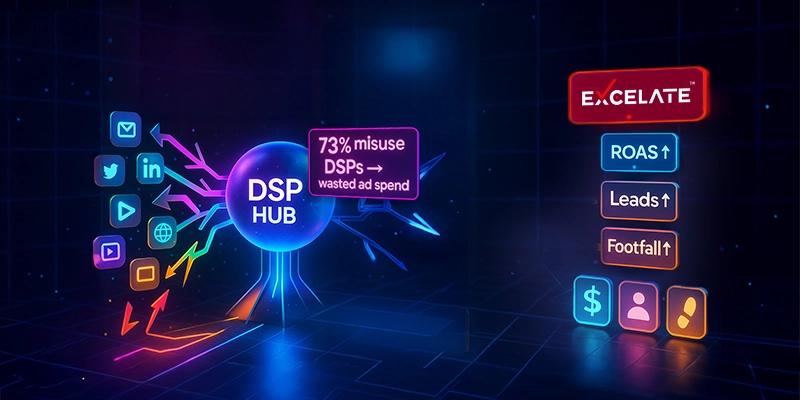Table of Contents
ToggleArtificial Intelligence (AI) is reshaping marketing, but with great power comes great responsibility. The EU AI Literacy Act is set to redefine how marketing agencies use AI, and its impact will extend far beyond Europe, impacting MarTech companies worldwide. For agencies in the GCC region (Saudi Arabia, UAE, Qatar), understanding this regulation is crucial to staying competitive and compliant in a global market.
What is the EU AI Literacy Act?
The EU AI Literacy Act is a regulatory framework designed to govern how marketing and advertising agencies use AI technologies. Although it’s focused on the EU, its impact will be felt by MarTech companies around the world, especially those working with European clients.
The Act mandates transparency, accountability, and ethical AI use, particularly in areas like content creation, audience targeting, and data handling. For MarTech agencies, this means updating AI strategies to ensure compliance and maintain a competitive edge.
Why is the EU Imposing the AI Literacy Act?

Responsible AI Use in Marketing and Data-Driven Industries
Under the Act, businesses and AdTech agencies must disclose how their AI algorithms operate. This means providing clear explanations about AI-driven decisions, ensuring transparency in marketing practices.
Transparency in AI-Powered Decision-Making
Under the AI Act, businesses and AdTech agencies are required to disclose how their AI algorithms make decisions. This means that companies must provide clear explanations about the functioning of their AI systems.


Stronger Data Protection & Ethical Guidelines
One of the main concerns is consumer privacy. To guarantee that data handlers manage information appropriately, the Act imposes strict rules. Companies that fail to adhere to these standards risk legal consequences and reputational damage.
What are the Newly Imposed Rules?
- Transparent Data Collection: Data must be collected openly and only for specific purposes.
- Informed Consent: Clear consent must be obtained before collecting personal data.
- Data Minimization: Only necessary data should be collected.
- Right to Erasure: Consumers can request their data be deleted, unless required for legal reasons.
- Data Security: Personal data must be secured, and breaches must be reported.
- AI Disclosure: AI-driven content and decision-making criteria must be clearly labeled.
- Ethical AI Usage: Avoid manipulative or discriminatory practices in advertising.

Who Will Be Affected by the AI Literacy Act?
Direct Impact
The Act will immediately affect all EU-based marketing agencies, AdTech companies, and brands using AI for personalization, automated content creation, or audience targeting. Platforms involved in programmatic advertising and real-time bidding must ensure compliance.


Indirect Impact
MarTech companies in the GCC region that collaborate with EU clients or handle cross-border data processing will also need to adhere to these regulations. Even if your business is based in Saudi Arabia, UAE, or Qatar, working with European partners could bring you under the Act’s scrutiny.
How Will It Change Martech & AI Driven Advertising?
AI in Advertising
- Stricter oversight on AI-generated ad placements.
- Transparent AI models for targeting and personalization.
- Prohibitions on misleading or manipulative AI-based advertisements.
Data Collection & Privacy
- Stronger regulations on user data tracking.
- Increasing penalties for violating AI governance rules.
Content Creation & Automation
- Clear labeling of AI-generated content.
- Ethical guidelines for automated marketing campaigns.
- Reduced reliance on AI for content prone to misinformation.
Compliance & Reporting
- Mandatory AI audits for marketing agencies.
- New reporting standards for AI decisions affecting consumers.
What’s Next for Marketing Agencies?
– Invest in Employee AI Literacy Training
Marketers must ensure their teams understand AI risks, benefits, and compliance measures.
– Regular Audits on AI Tools
Conduct frequent audits to ensure AI-powered platforms meet transparency and ethical guidelines.
– Enhance Transparency
Clearly communicate how AI systems make decisions that impact consumers. This builds trust and ensures compliance.
The Future of AI in Marketing
The EU AI Literacy Act is more than just a regulatory hurdle—it’s an opportunity for MarTech agencies to lead with ethical AI practices. By focusing on compliance, transparency, and data privacy, agencies can build consumer trust and stand out as industry leaders.
As Mona de Boer, Digital Trust, Data & Artificial Intelligence at PwC, aptly puts it:
“AI literacy is a journey, not a destination. An effective AI literacy program is essential to achieve an equipped workforce, use AI responsibly, and comply with new legal requirements.”

FAQs About the EU AI Literacy Act
-
1. What is the EU AI Literacy Act?
The EU AI Literacy Act is a regulatory framework that governs the ethical use of AI in marketing and advertising, emphasizing transparency, accountability, and data protection.
-
2. How does the EU AI Literacy Act affect GCC-based MarTech agencies?
Even if your agency is based in the GCC region, you must comply with the Act if you work with EU clients or handle cross-border data processing.
-
3. What are the key requirements of the EU AI Literacy Act?
Key requirements include transparent data collection, informed consent, data minimization, ethical AI usage, and clear labeling of AI-driven content.
-
4. How can MarTech agencies ensure compliance with the Act?
Agencies should invest in AI literacy training, conduct regular AI audits, and enhance transparency in AI decision-making processes.
-
5. Why is the EU AI Literacy Act important for the GCC region?
The Act sets a global standard for ethical AI use, and GCC-based agencies working with international clients must comply to avoid legal and reputational risks.
-
6. What are the penalties for non-compliance?
Non-compliance can result in hefty fines, legal action, and damage to your brand’s reputation.



